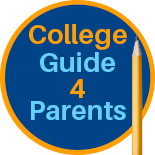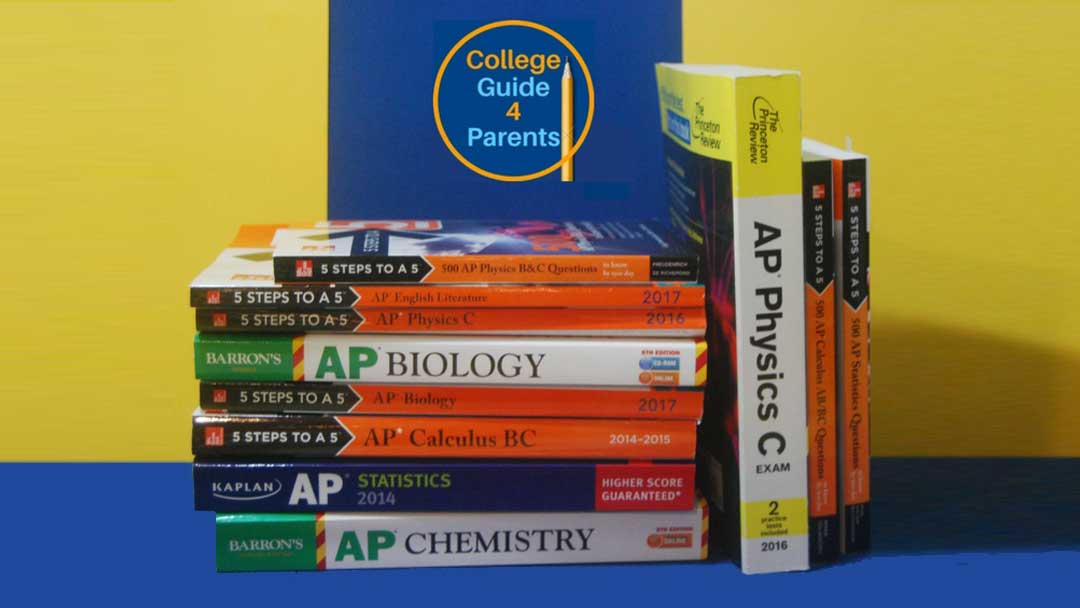AP classes are gaining in popularity. The College Board reports that twice as many students sit for AP exams today than they did ten years ago.
Your high schooler will soon need to decide on her schedule for next year. If she never took an AP class before, you may wonder whether she should register for one.
In this post, we will look at:
- What are AP classes
- Why advanced classes like APs help build strong college apps
- How to use AP courses to earn college credits in high school
- What are some of the negatives of the AP program
- How to decide whether your child should take an AP class
- Some easier AP classes
- How to study to do well on the AP exam
1. What are AP classes
AP stands for Advanced Placement, a program set up by the College Board to provide college-level classes within the high school setting. This organization also handles the SAT and PSAT.
AP classes are designed to cover the same curriculum as an introductory college class. For this reason, they include more advanced material than typical high school courses. Also to do well students must typically spend more time on homework.
High schools handle AP courses just like any other class. Students attend them and get a final grade on all the work and tests assigned by their teacher. However, to prove they have mastered the topic, high schoolers can take an additional standardized test, the AP exam. College Board administers these tests at your child’s school. For instance, all US students who are in the AP World History course this year will have the opportunity to take the AP World History exam on May 16.
AP tests last about 3 hours and include a multiple-choice section as well as some essay questions. They are graded on five, five being the highest score. To pass the test, your child must get at least a three.
2. Why advanced classes like APs help build strong college apps
College admissions officers are looking for applicants who are ready to handle college coursework. To do so, when reviewing a student’s application, they scrutinize his GPA, his transcript and the list of classes he took since 9th grade. By enrolling in APs, your son can demonstrate that he challenged himself throughout high school and will adjust quickly to college.
Students who plan on applying to competitive schools or for merit-based scholarships can increase their chances by taking the hardest AP classes and doing well on their AP exams.
Finally, getting an A or even a B in an AP class will boost your child’s GPA. Because these are more difficult than regular courses, an A counts as 5.0 instead of 4.0, and a B as 4.0 instead of 3.0. Scoring an A in several courses can help seniors graduate with a GPA higher than 4.0.
3. How to use AP courses to earn college credits in high school
As part of their college graduation requirements, students must enroll in several general knowledge classes as well as introductory courses in their field.Many of them have equivalents in the College Board’s AP program.
In many instances, a first-year student who scored a four or a five on an AP test can receive credits for that class if it fulfills one of his college graduation requirements. For example, most colleges accept the AP Psychology class as a substitute for their introductory course to psychology both in terms of meeting graduation requirements and credit hours earned. Thus, enrolling in AP classes can reduce the number of semesters your child will need to spend in college or give her the flexibility to take classes outside her major while still graduating on time.
Each college has its own rules about how it handles AP credits. For instance, in the case of students who scored a three on an AP exam, some schools will give credits, while others will count the class towards college graduation requirements and expect the student to take a more advanced class instead. In this case, while your child will not be able to graduate early, she will be able to start focusing sooner on the classes related to her major.
Lastly, it is important to know that some competitive schools do not give any equivalency for AP classes because they do not consider them as being as rigorous as those offered by their faculty.
4. What are some of the negatives of the AP program
As we saw, students obtaining a high grade on their AP exams can to build strong college applications and earn college credits. This is the ideal case scenario.
Conversely, a student who struggles in an AP class to the point of obtaining a grade that lowers his GPA or failing the AP test will get none of the benefits of the AP program. In fact, he will be worse off since his transcript will show that he could not handle a college-level class.
College Board claims that because more schools offer AP courses, more students can better prepare for college even in low-income areas. Critics of the AP program do not agree and say that AP classes are not improving colleges opportunities for poorer students. As PrepScholar reports, while the number of AP tests taken has doubled in the last ten years, so did the number of students who did not pass the test. Underprivileged areas are where the growth is taking place but also where many students fail their AP exams.
Establishing a good AP program takes a few years and necessitates some financial investment. While each school can start by offering just a few classes and grow its program over time, hiring experienced AP teachers can be taxing for low-income districts. A successful AP teacher must be qualified to teach college-level material and know how to prepare his/her students for the AP test.
For these reasons, it is important to assess the quality of the AP program at your child’s school before enrolling him in an AP class.
5. How to decide whether your child should take an AP class
As we have discussed earlier, a student should take an AP class only if it will not lower her GPA and if she has a good chance to pass the AP test.
The first thing to consider is whether your child could handle the added difficulty and the extra homework typical of AP classes. The school counselor will be able to assess whether she is ready to tackle more advanced courses, and if so, which one to try first.
It is also important to assess the quality of the school’s AP program. How long has it been offered at the school? What are the older students saying about the AP classes they took? What grade did they get in the class, and how did they score on the test?
When considering a specific class, it is useful to learn more about the teacher. Is she able to cover all the curriculum? How does he grade? Is he too lenient or too strict? How much homework does she assign? What percentage of the students passed last year’s AP test? How many got a four or a five?
6. Some easier AP classes
AP classes have the reputation of being challenging. And most are. AP Calculus BC, and AP Chinese Language and Culture are considered the hardest of the 38 classes College Board offers.
However, if your son wants to get his feet wet and show that he challenged himself while in high school, the AP Psychology, AP Human Geography and AP Environmental Science courses will prepare him for the rigor of college classes without being too difficult. They will introduce your child to the study skills and organization required to succeed in college. However, while there is a lot of information to retain, the material covered in these courses is not very difficult. To do well in them, your child will have to pay attention in class and review the material taught daily. Also, homework will be more demanding, and there will be a lot of material to read.
7. How to study to do well on the AP exam
To get the full benefit of taking these classes, students should aim to pass the test (score a three out of five) and if possible get a four. This would maximize their chances to get college credits.
Getting a high grade in the class does not guaranty a good score on the exam. While teachers are supposed to follow the curriculum set by the College Board, the level of difficulty of AP classes vary greatly from one high school to another. Some teachers may be very lenient and give little homework, while others may give tough exams and expect a lot of work outside of the classroom.
The best way for a student to know whether she is ready for the AP exam is to practice answering questions from old AP tests. Some can be found online. There are also many AP study guides which review the contents of the course and provide practice questions. Search the web for “AP test prep books.” Your child can buy them online or borrow them from a local library.
The website Khan Academy is also a great resource for students looking for extra practice.
While the AP program is not perfect, taking AP classes can help your child build strong college applications, learn study skills that will help him with university coursework, and earn credit hours. The quality of the AP program at your son’s high school and how well he is doing in his regular classes are the two important factors to consider when deciding on whether he should take an AP class.
Related online resources:
The College Board official list of AP classes
Khan Academy is the official partner for AP by khanacademy.org
A description of Khan Academy’s online AP tutoring programs
Are AP classes worth it? by PrepScholar
Pros and cons of taking AP classes according to PrepScholar
These are the hardest AP classes and tests for you by PrepScholar
5 hardest AP classes according to PrepScholar
These are the easiest AP classes for you by PrepScholar
4 easiest AP classes according to PrepScholar
Use AP Credits to graduate from college in 3 years by U.S. News
How using AP classes to earn college credits can allow a student to graduate from college in 3 years.
These are the 5 worst problems with College Board’s AP program by PrepScholar
Some of the drawbacks of the AP program.
Study Up: scoring AP credit for college isn’t easy by CNBC
How to earn college credits with AP courses.
AP credit policy search by the College Board
Find out how a specific college handles AP classes and whether your child could get credit hours for the courses he took
8. PREVIOUS COLLEGE GUIDE 4 PARENTS’ APP NEWS AND RELATED POSTS
Topics : National Merit semifinalists, finalists, and scholarships, helping your child select which college to attend, why choose a challenging coursework
Topics : What is a good ACT score, obtaining good letters of recommendation, documenting your child’s extracurricular activities
Topics : What is a good ACT score, obtaining good letters of recommendation, documenting your child’s extracurricular activities
October 2018 College App News – ACT Superstore, Sending Scores, College Essays
Topics : ACT scores vs. superscores, test-flexible schools, how to send scores, and how starting extracurricular activities as early as 9th grade will help when writing college essays
September 2018 College App News – PSAT, ACT, Early Action, Early Decision
Topics: 2018 PSAT test, taking the ACT in the fall, and volunteering before senior year
2018-19 College Essay Advice: 82 Posts by College Prep Experts
This article contains links to 82 posts about writing this year’s college essays, like the Common Application, Coalition Application and ApplyTexas essay prompts, and the application and supplemental essays for 62 popular colleges including several ivy league schools, the universities of New York and California, and Texas A&M.
9. REQUEST FOR COMMENTS
If this information were of help to you or if there are topics you would like me to address, please leave a comment.


